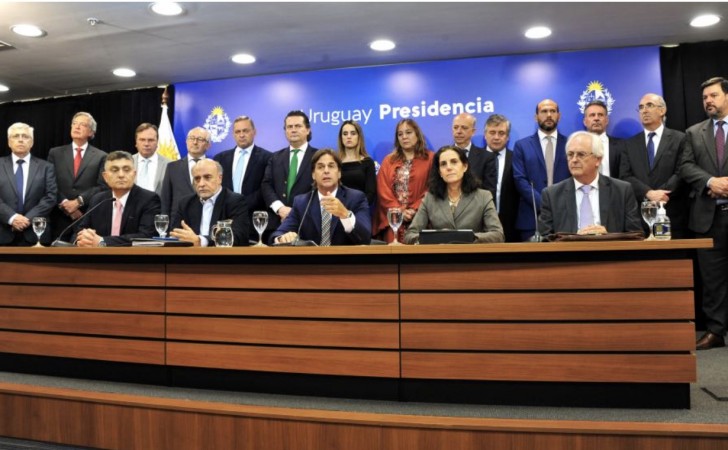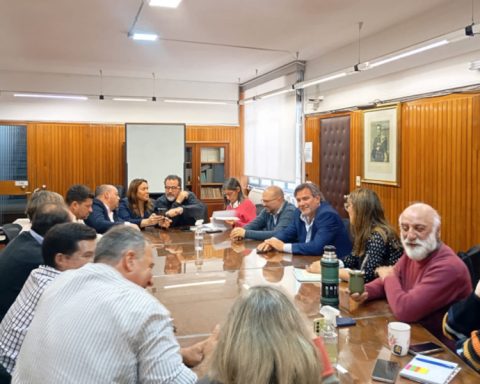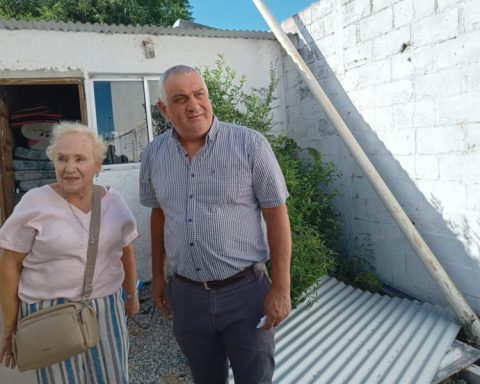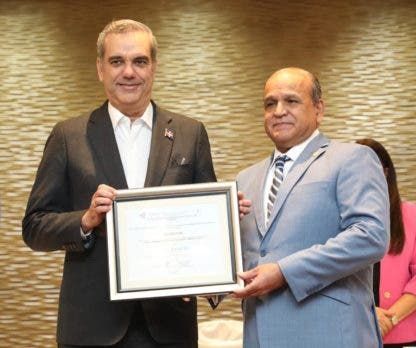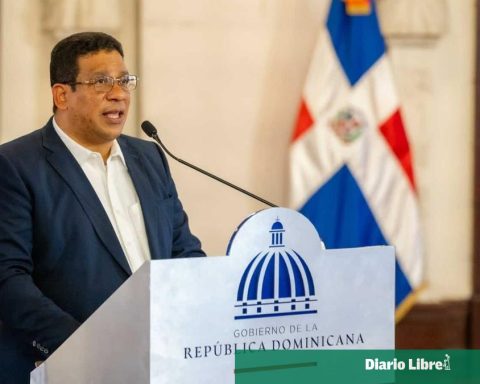https://www.youtube.com/watch?v=5P8Wka-DCEQ
With a squad of lawyers, ministers and other government officials, the President of the Republic, Luis Lacalle Pou, once again came out to defend the controversial social security reform that is generating a deep discussion in the citizenship and that has already found doubts in the Broad Front.
In the Council of Ministers this Thursday, all the government portfolio hierarchs put their signatures to the project, the previous step before the text enters Parliament, where it will be debated and the Broad Front is expected to make public its position on the matter.
He warned that, if a reform is not carried out in the coming years, there is a risk that the social security system, pensions and retirement benefits will become unviable. The projection of spending and the deficit in the next 40 or 50 years is “enormous” and that is supported by the “pocket of the Uruguayans”, therefore, this reform is necessary, and with each passing day the situation worsens still more, warned the president.
Although Lacalle Pou says that his proposal is “perfectible”, it is written with “characteristics of necessity, sustainability and solidarity” with which, he says, it is written.
One of the characteristics of the reform is that it includes all the social security subsystems: the Retirement and Pension Service of the Armed Forces, the National Police Assistance and Social Security Directorate (Police Fund), the Bank Retirement and Pension Fund, the Retirement and Pension Fund for University Professionals and contributors to the Social Welfare Bank, he explained.
Lacalle feels confident that this reform will be approved “with or without the Broad Front”.

A reform of 330 articles
During the presidential campaign, the multicolored coalition had promised that it would advance with a major social security reform, an element that was included in Commitment to the Country, Lacalle Pou’s government plan.
In the Law of Urgent Consideration (LUC) the Commission of Experts on Social Security (CESS) was created, with members of all political parties and labor, business and retiree unions.
The CESS worked between November 2020 and November 2021, during which time it met with at least 84 civil organizations, and received contributions from the entire academic spectrum:
University of the Republic (UDELAR), University of Montevideo (UM), Catholic University (UCU), ORT University, CLAEH University and Company University (UDE). In addition, from the Center for Economic Research (CINVE), Center for the Study of Economic and Social Reality (CERES), Center for Development Studies (CED) and the Cuesta Duarte PIT-CNT Institute.
